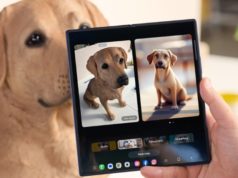Fitbit did not steal rival Jawbone’s trade secrets, a U.S. International Trade Commission judge ruled on Tuesday, dashing Jawbone’s hopes of securing an import ban against Fitbit’s wearable fitness tracking devices.
The judge, Dee Lord, said that there had been no violation of the Tariff Act, which gives the commission the power to block products that infringe U.S. intellectual property, because “no party has been shown to have misappropriated any trade secret.”


The ruling means Jawbone comes away with nothing from a complaint it filed with the trade agency in July 2015, accusing Fitbit of infringing six patents and poaching employees who took with them confidential data about Jawbone’s business, such as plans, supply chains and technical details.
Two of the patents were withdrawn, however, and four others were invalidated by the judge, before a May trial that was limited to the trade secrets claims.
Fitbit Chief Executive Officer James Park said in a statement on Tuesday that Jawbone’s allegations were without merit and an attempt “to disrupt Fitbit’s momentum to compensate for their own lack of success in the market.”
A representative for Jawbone could not immediately be reached for comment.
Fitbit is biggest maker of wrist-based and clippable fitness devices, which track users’ steps, calories burned, heartrates and other parameters. It sold 5.7 million devices in the second quarter, beating revenue estimates.
Jawbone makes a range of activity trackers under the UP brand but has been losing market share. It is no longer among the top five wearables vendors, according to market research firm International Data Corp.
Tuesday’s ruling comes on the heels of a victory for Jawbone in a separate trade case filed against the company by Fitbit. On July 19, another commission judge found all three Fitbit patents in that case were invalid. Fitbit has asked the full trade commission to review the ruling.
Jawbone first sued Fitbit last year over trade secret violations in California state court, where the case is still pending. The companies, both based in San Francisco, are also litigating over patents in federal court.







